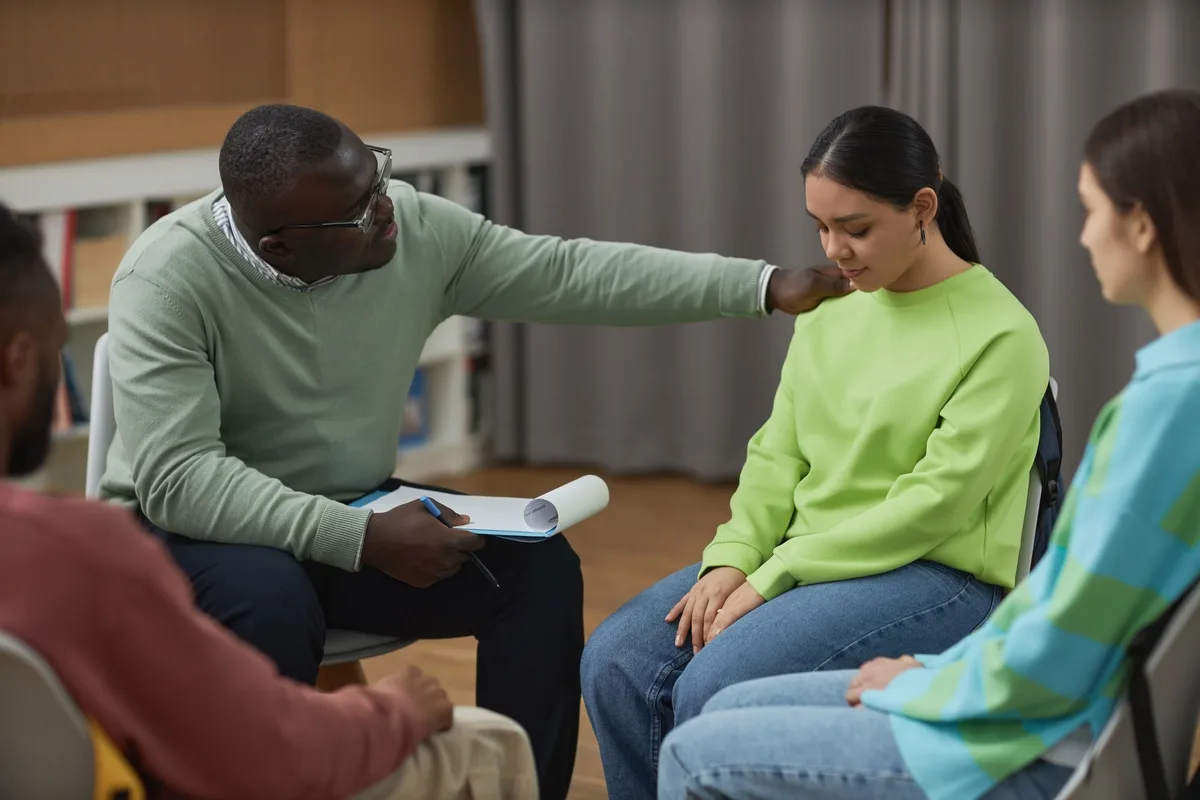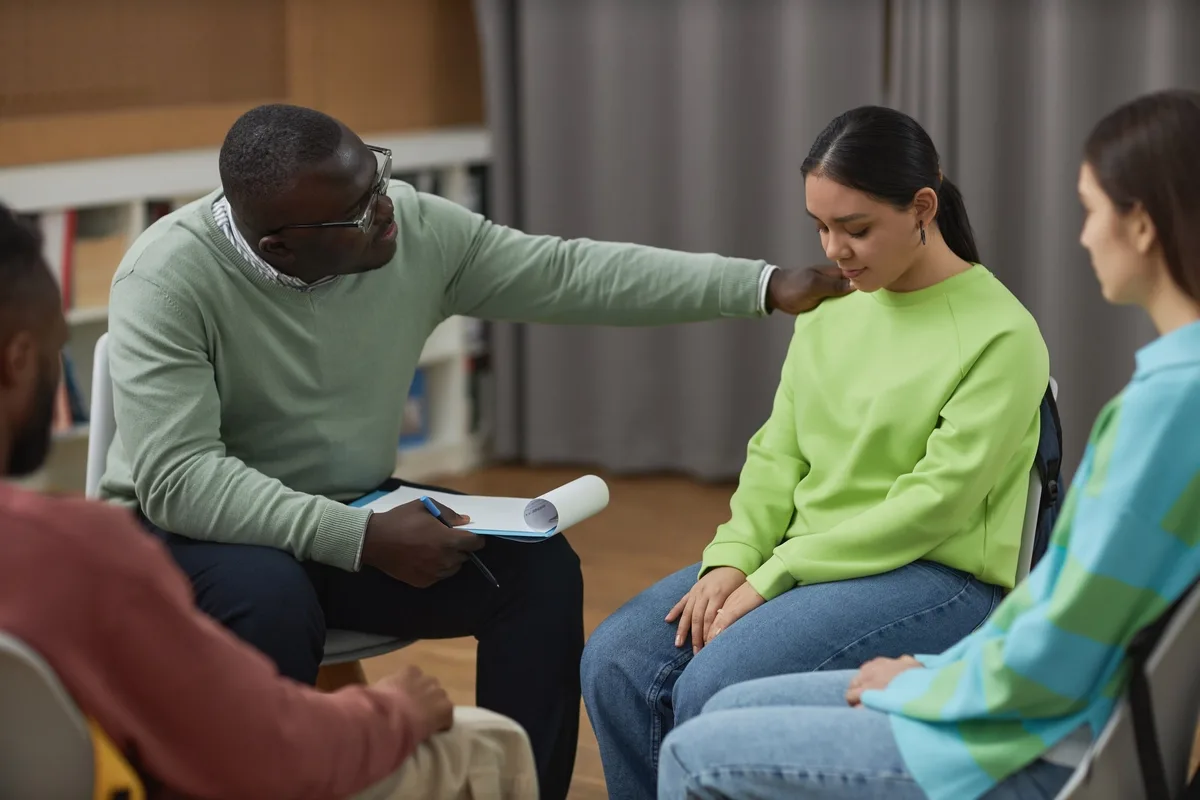24/7 Helpline:
(866) 899-221924/7 Helpline:
(866) 899-2219
Learn more about PTSD Treatment centers in Montgomery
PTSD Treatment in Other Cities

Other Insurance Options

Regence

Covered California

Cigna

Excellus

Highmark

Aetna

Absolute Total Care

Evernorth

Carleon

Providence

Ceridian

Premera

PHCS Network

ComPsych
Beacon

Ambetter

United Health Care

Magellan

Choice Care Network

AllWell









Portrait Health Centers and Counseling Services
Portrait Health Centers and Counseling Services is a private rehab located in Oswego, Illinois. Port...

New Light Consultants
New Light Consultants is an outpatient clinic dedicated to provide mental health and substance abuse...

Farnham Family Services – Chemical Dependency Outpatient
Farnham Family Services – Chemical Dependency Outpatient is a non-profit rehab located in Oswego, Ne...






Council on Alcoholism and Addictions
Council on Alcoholism and Addictions is a private rehab located in Oswego, New York. Council on Alco...




























































































